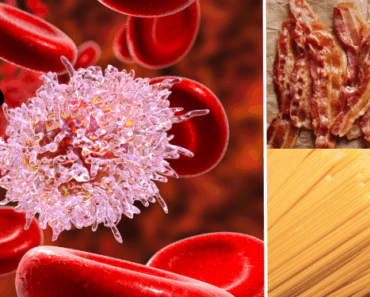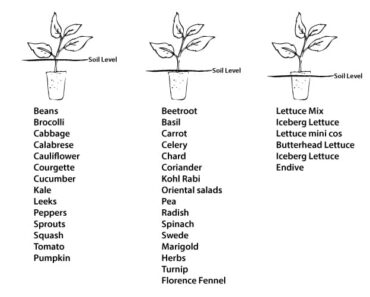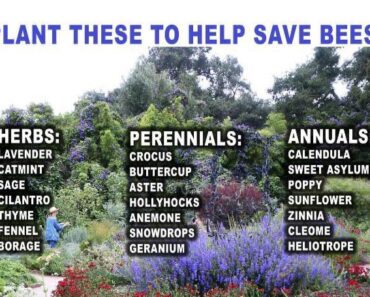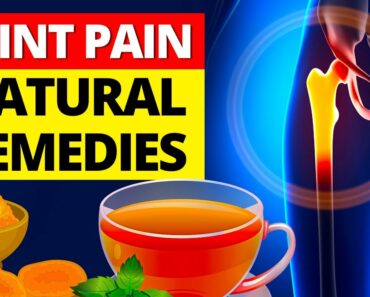Introduction
Cancer is a word that strikes fear and uncertainty into the hearts of millions worldwide. While advances in medicine provide hope, there is growing awareness of the profound role diet can play in both cancer prevention and complementing treatment. Oncologists and researchers consistently point to certain foods that have powerful protective properties against cancer, and including them in your daily diet may make a real difference in your risk—and your health journey.
This article presents seven foods commonly recommended by oncology experts, explaining their cancer-fighting compounds and how best to incorporate them into your meals. Let’s explore which foods make the biggest impact, how they work, and simple, actionable tips for harnessing their power.
1. Berries
Why Oncologists Recommend Them
Berries—such as blueberries, strawberries, raspberries, and blackberries—are nutritional superstars loaded with vitamins, fiber, and potent antioxidants like anthocyanins, ellagic acid, and resveratrol. These compounds are famous for neutralizing free radicals, reducing inflammation, and protecting cells from DNA damage—a process at the core of many cancer types.moffitt+1
Studies suggest frequent berry consumption is linked to a lower risk of digestive tract cancers and positive effects on cardiovascular health. Their colorful pigments signal robust concentrations of health-promoting phytonutrients.
How to Enjoy
-
Add a handful to breakfast cereal, yogurt, or smoothies.
-
Eat fresh as a snack, dessert, or salad topping.
-
Freeze for convenient, off-season additions.
2. Cruciferous Vegetables
Why Oncologists Recommend Them
Cruciferous vegetables—broccoli, cauliflower, cabbage, Brussels sprouts, and bok choy—contain bioactive compounds like indole-3-carbinol and sulforaphane that have been shown to slow tumor growth, boost detoxification, and regulate hormones. These vegetables are unique in their ability to stimulate the body’s phase II enzymes, supporting elimination of carcinogens.cancer+1
Research shows regular intake lowers the risk of breast, colon, and lung cancers.
How to Enjoy
-
Roast cruciferous vegetables with olive oil for a caramelized finish.
-
Add raw or steamed to grain bowls, stir-fries, or salads.
-
Incorporate shredded cabbage into slaws or sandwiches.
3. Oily Fish
Why Oncologists Recommend Them
Fatty fish—salmon, tuna, mackerel, sardines, and anchovies—provide omega-3 fatty acids, known for anti-inflammatory effects that help reduce the risk of breast and colorectal cancer. Omega-3s may interfere with cancer cell growth, support healthy immune function, and offer heart benefits as well.uchealth+1
Emerging research continues to show that regular fish intake may have a protective effect, especially when fish replaces red and processed meat in the diet.
How to Enjoy
-
Bake, grill, or steam fish; season simply to let flavors shine.
-
Make cold salads with canned wild salmon, avocado, and greens.
-
Add sardines or anchovies to pasta dishes for umami depth.
4. Nuts
Why Oncologists Recommend Them
Nuts—especially walnuts—feature a rich blend of fiber, healthy fats, vitamin E, and polyphenols with cancer-fighting potential. Studies note that nut consumption is inversely associated with colon, endometrial, and pancreatic cancer risk.aicr+1
Walnuts in particular contain ellagitannins, which are metabolized by gut bacteria into cancer-inhibiting compounds.
How to Enjoy
-
Eat unsalted nuts on their own or mixed with dried fruit.
-
Sprinkle on oatmeal, salads, or roasted vegetables.
-
Use toasted nuts in dessert recipes for extra depth.
5. Legumes (Beans, Lentils, Chickpeas)
Why Oncologists Recommend Them
Legumes are an inexpensive source of plant-based protein, fiber, minerals, and flavonoids with strong anti-cancer action. They help regulate blood sugar—important for cancer prevention—and bring powerful antioxidants to the digestive tract.moffitt+2
Research links higher legume intake to reduced risk of colorectal, breast, and prostate cancers.
How to Enjoy
-
Add beans and lentils to soups, stews, and chili.
-
Try spreads like hummus or bean dips.
-
Pair with whole grains for complete vegan protein.
6. Whole Grains
Why Oncologists Recommend Them
Whole grains—brown rice, oats, quinoa, barley, whole wheat bread—contain antioxidant compounds (Vitamin E, lignans, phytic acid) and a healthy dose of dietary fiber. Fiber supports a healthy microbiome, lowers cancer risk, and keeps digestion regular.cancer+2
Each additional 10 grams of fiber per day (from whole grains) is linked to a 7% risk reduction for colorectal cancer.
How to Enjoy
-
Switch regular bread and pasta for whole grain versions.
-
Cook large batches of grains for meal prep.
-
Add to bowls, salads, or use as a base for lean proteins and veggies.
7. Fermented Foods
Why Oncologists Recommend Them
Fermented foods (yogurt, kefir, kombucha, kimchi, sauerkraut, tempeh) contain living bacteria called probiotics that boost gut health and support immune defense. Some research indicates that probiotics can neutralize carcinogens, reduce inflammation, and support colorectal cancer prevention.aicr+1
Probiotics also help with digestion and tolerance of some cancer treatments.
How to Enjoy
-
Mix plain yogurt with fruit, granola, or drizzle with honey.
-
Drink kombucha as a refreshing beverage.
-
Add kimchi, sauerkraut, or pickles to salads and sandwiches.
Evidence-Based Dietary Guidelines for Cancer Prevention
Oncologists and dieticians recommend an overall pattern—mostly plant-based, diverse, and rich in colors. Focus on variety:
-
Fill Half Your Plate with Vegetables and Fruits: The American Cancer Society recommends 2½ to 3 cups of vegetables and 1½ to 2 cups of fruit each day.cancer
-
Choose Whole Grains Over Refined: Fiber is key for gut health and weight management.
-
Limit Red and Processed Meats: These have been linked with higher colorectal cancer risk.wcrf+1
-
Prioritize Healthy Fats: Opt for nuts, seeds, fish, and olive oil over saturated fats.
Avoid added sugars, sugar-sweetened drinks, and highly processed foods when possible.
Foods to Limit or Avoid
While focusing on the seven foods above, it’s also important to minimize intake of:
-
Red and processed meats
-
Sugar-sweetened drinks
-
Processed snack foods and refined grains
-
Excess alcoholmdanderson+1
These foods have been consistently linked with increased cancer risk in multiple studies.
Nutrition Tips During Cancer Treatment
Patients undergoing cancer treatments such as chemotherapy, radiation, or surgery have unique nutritional needs. Oncologists and nutritionists suggest:
-
Eat small, frequent meals packed with protein and calories to maintain energy and muscle mass.cancersupportcommunity+1
-
Choose soft, mild foods if the digestive tract is irritated.
-
Hydrate with water and clear broths; include high-calcium dairy if tolerated.
-
Discuss supplements and special nutritional needs with your doctor.
Making Cancer-Fighting Foods Part of Your Daily Life
Choose simple swaps that make a big impact. Try:
-
Adding berries to breakfast every day.
-
Making stir-fries loaded with broccoli and cabbage.
-
Bringing fish into the weekly meal plan.
-
Packing nuts for afternoon snacks.
-
Preparing chili or grain salads with a variety of beans and lentils.
-
Switching to whole grain pasta and bread.
-
Incorporating fermented foods into main meals and snacks.
Variety and consistency matter: cancer prevention is built over months and years of healthy choices.
Conclusion
Oncologists agree—while no single food is a cure, a diet rich in plant-based foods, lean proteins, whole grains, and probiotics offers powerful protection against cancer and strengthens the body during treatment. Add these seven foods to your plate every week to fuel your body’s natural defenses, lower your cancer risk, and support overall wellness. The choices you make at every meal matter. Start today!
Sources:
-
Moffitt Cancer Center: Cancer-Fighting Foodsmoffitt
-
American Cancer Society Guidelines on Cancer Preventioncancer
-
AICR Foods That Fight Canceraicr
-
University of Cincinnati Cancer Center: Nutrition for Cancer Prevention and Treatmentuchealth
-
World Cancer Research Fund Recommendationswcrf
-
MD Anderson Cancer Center: Diet & Cancer Riskmdanderson
-
Cancer Support Community: Nutrition During Cancer Treatmentcancersupportcommunity
- https://www.moffitt.org/endeavor/archive/10-cancer-fighting-foods-you-should-be-eating/
- https://www.cancer.org/cancer/risk-prevention/diet-physical-activity/acs-guidelines-nutrition-physical-activity-cancer-prevention/guidelines.html
- https://www.uchealth.com/en/media-room/articles/foods-that-fight-colorectal-cancer-a-guide-to-nutrition-for-prevention-and-treatment
- https://www.mdanderson.org/prevention-screening/manage-your-risk/diet.html
- https://www.aicr.org/cancer-prevention/food-facts/
- https://www.wcrf.org/preventing-cancer/cancer-prevention/our-cancer-prevention-recommendations/
- https://www.cancersupportcommunity.org/diet-nutrition-during-cancer-treatment
- https://stanfordhealthcare.org/medical-clinics/cancer-nutrition-services/resources.html







